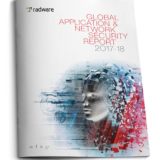Why would companies offer free DNS recursive servers? DNS data is extremely valuable for threat intelligence. If a company runs a recursive DNS for consumers, it can collect data on new domains that “pop up”. It can analyze trends, build baselines on domain resolution and enrich its threat intelligence overall (machine learning and big data are often used here). Companies can also sell this data to advertisers to measure site ratings and build user profiles.

The DNS resolver market for consumers is ruled by ISPs, as well as some other known servers by Google (8.8.8.8) and Level3 (CenturyLink). Since Cisco bought OpenDNS in August 2015, it has also become a major player, offering DNS services for individuals and organizations with its cloud security platform, Umbrella. Cisco OpenDNS focuses on malware prevention, as well as parental control for consumers. Akamai is also involved in the market, offering both recursive DNS for enterprises (a rather new service, based on a 2015 acquisition of Xerocole), and authorizes DNS services for their CDN clients. In several publications, Akamai claims to see more than 30% of internet data and is using this data as an add-on feed to its KONA service.
[You might also like: DNS and DNS Attacks]
In the Fall of 2017, IBM announced its new quad 9 (9.9.9.9) DNS service. This security-focused DNS uses IBM’s threat intelligence to prevent revolving known malicious domains (and protect against Malware) with approximately 70 servers worldwide. It claims to offer decent speed, and IBM has promised not to store any personal information (PII). On April 1, 2018, Cloudflare came out with a new quad 1 resolver – 1.1.1.1– that focuses on speed. With more than 1,000 servers, it promises to be the fastest resolver to any location. Additionally, Cloudflare promises never to sell the resolving user data, and to delete the resolver logs every 24 hours. Several independent measurements have confirmed Cloudflare’s success on speed which is typically the fastest after the ISP resolver. The one issue with a large number of servers is diffusion time as quad 1 takes significantly more time than other DNS providers to update about changing DNS records.
Another DNS initiative is DoH - DNS over HTTPS. This is a new standard proposal which is reviewed as the encrypted version of DNS (like HTTPS to HTTP). The focus here is both on privacy and security as DNS requests are done over HTTPS to prevent any interception of the request. If a user is using a different DNS, the ISP can still track the clear-text DNS requests, log them, or override them to use its own DNS resolver. The DoH protocol prevents this. Two major cloud DNS recursive servers support this protocol – the recent quad 1 by Cloudflare and Google’s DNS, as well as some other smaller ones. Mozilla recently ran a PoC with native Firefox support for DoH which was described here by Ars Technica.
[You might also like: DNS Reflective Attacks]
As we’ve shown, the DNS continues to evolve, both as a spec and as a service. Companies continue to invest a lot of money in collecting DNS data as they see the value in it. While each company provides a slightly different service, most are looking to mine the data for their own purposes. In order to do that, companies will be happy to provide the DNS service for free and compete in this saturated market.

Read “Radware’s 2017-2018 Global Application & Network Security Report” to learn more.
Download Now